
Explore the full spectrum of entry-level job profiles for graduates plus jobs that demand specific postgraduate degrees and the scope for career growth!
An agent seated in a colourful cubicle, ears sandwiched between a large pair of headphones, all set to tackle the queries of customers based out of the US -- this is the most popular image associated with the BPO industry.
For a sector that has been around in its current avatar for over a decade in India, the term BPO is still synonymous, for many, with two words -- call centre. So, do all BPO employees answer phone calls?
@ the Call Centre
"First of all we don't use the term call centre anymore, or refer to them as contact centres because there are different
programmes -- the most common being the incoming call by a customer using the phone," Tim Huiting, vice president-
Human Resources, Convergys says.
"They respond to customers through e-mail or chat, a growing area right now. You are not speaking but it's a live programme. Some programmes are a blend of a call back to a query, an online intervention, plus someone does research and will then call the customer back "
In other words voice is only a component of the industry, albeit a substantially large component. With over 300 big companies, and presence in almost all cities, the sector employs more than a million individuals, with a large posse of frontline staff (known as agents) along with a team of managerial staff.
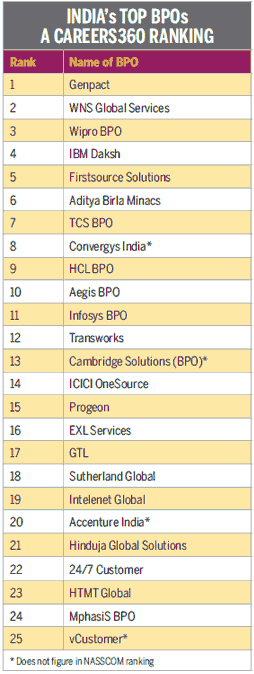
A chunk of international clients are based in the US, UK and Australia and include companies in banking and financial services, insurance, healthcare, energy and utilities, manufacturing, communication service providers, retail services and transportation, to name a few.
Typically, agents work in eight-hour shifts, a majority of whom clock in the night shift, due to the time lag, though some in the back office functions also work during the day. For instance, Priya Jayant, senior customer care officer at Convergys, Gurgaon, tackles e-mails sent by customers in the US, relating to their credit cards. She works a day shift.
"In the Philippines, the concept of the night shift is much more embraced. For instance, some commercial establishments offer Happy Hours in the morning, because a huge group of people get off work at 5 am. Lots of things in the Philippines are built around the BPO industry," says Tim.
Though the night shift has been a bone of contention, it is an inevitable part of the Indian BPO scenario, and is here to stay it seems.
Getting hired
Stringent background checks, to verify if all information submitted is authentic, is part of the territory since the information handled by agents is sensitive and must be kept confidential.
"We work with NASSCOM-accredited agencies to do background checks on all new recruits. Sometimes recruits lie about companies they have worked with in the past or even try to hide criminal activity," Raghavendra Krishnamurthy, VP and Head HR, Infosys BPO, informs us.
Typically the results come in between 30 and 60 days of joining. So, keep it real. Interestingly, the BPO sector encourages talent from all quarters. Bangalore BPO e-VindhyaInfo's staff comprises 95 per cent differently-abled men and women in the age group of 24-30.
Madhu, a learning & development facilitator at IBM Daksh, is 100 per cent visually impaired, and Amit Jaitley, who despite being afflicted with polio, manages the entire operations of an IBM Daksh centre in Chandigarh. And with the establishing of rural BPOs in villages, rural youth also get on the BPO bandwagon.
The top 25 BPO firms are ranked by consolidating the rankings of industry body NASSCOM and leading IT magazine DATAQUEST that were spread over the last five years (2005 to 2009). We accorded even weights to these two rankings. While NASSCOM ranks 15 firms every year, DATAQUEST lists the best 20 BPOs (DQ listed top 25 and top 40 BPOs in 2006 and 2005, respectively). The firms that figured two times or less in the last five years were ignored as were the firms which appeared only in one publication.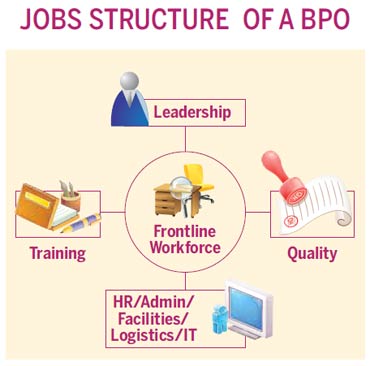
Get familiar with the sector's popular terminology:
Main actors
Process: Refers to the type of work being outsourced to a BPO
Operations floor: A physical space populated with rows of cubicles and a place of work for the agents and their supervisors. A high security area, cell phones and other mobile devices are banned.
Agent: He/ she is the interface between customer and client, and is responsible for providing resolution, selling products and offering information.
Team Leader: He/she manages a team of 10 to 15 agents. Is responsible for the agent's performance and retention. The team leaders' incentives are tied to the overall performance of their team.
KPO: A BPO offering high-end services or 'domain specific services' to a client.
Entry-level job profiles
There are two categories: voice processes require you to interact with clients or customers via phone, whereas a non-voice process does not.
"By virtue of one's age, the maturity level of a graduate tends to be much higher," says Sunder Ramachandran, MD, WCH Training Solutions.
Service Representatives: Interact with customers over the phone. This could range from informing a customer of his bank balance, credit card payment dates, etc. Most customer service profiles do not require any specialised domain knowledge.
Technical Support: A specialised support, which may require a specific degree or diploma.
Hardware Support: Besides being a graduate, you need a diploma in computers. Most companies providing hardware support will train you on their hardware but you need a basic understanding of computers.
Software Support: Requires additional qualifications like MCSE. Some institutes offer courses in C, C++. The jobs in this domain would involve troubleshooting for operating systems.
Network Support: A specialised field, where you need a certificate course in networking. CCNA is a good course that can fetch you a great career in the Network support.
More roles for graduates
Business analyst: A domain-specific KPO profile, it deals with business or financial analysis. Requires specific academic qualifications like mathematics and statistics. Decent communication skills, due to client interaction.
Financial Support Executives: For a banking/insurance support sector, profile, you must be a commerce graduate with good communication skills. Exposure to banking, finance or insurance will be an added advantage.
Medical Transcription: You must be a science graduate. Listening skills, good written English and typing speed are a must.
Technical Writing/Instructional Designing: A certification in instructional design or technical writing. Many companies are outsourcing content writing to India. Technical writers/ flash designers are also in demand.
Language Specialists: Knowledge of a foreign language such as German, French, Spanish and now Japanese, is in demand.
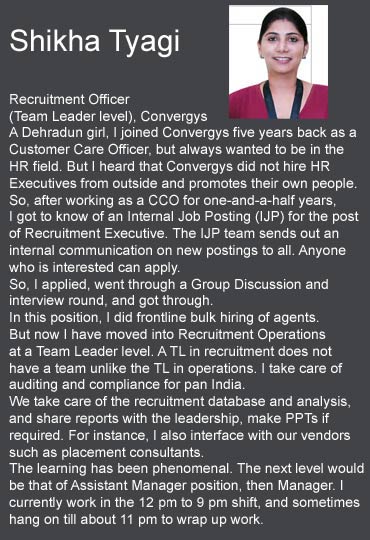
If you aspire to join the BPO sector, get used to the idea of rigourous training and assessment at every juncture(sometimes before you join, after your join and when you get promoted!).
Typically, fresh recruits undergo three to six weeks of intense training to improve their communication skills and understand the process they will be working in. Be prepared for highly interactive sessions, animated instructors and constant feedback.
Moving up the ladder
Ankit Sharma (name changed) started out as a voice agent two years back, now works as a Subject Matter Expert (SME). "I joined a team where agents who know different languages help customers through chat and e-mails. Today I'm training the 28th batch," says Ankit.
Typically, an SME's role includes training agents in the process, process reengineering projects, managing people (partly), SLA Compliance, customer interaction and knowledge management. Team leadership within operations, is the next step, if you have leadership qualities and good process understanding.
Typically, a team leader at Infosys' BPO manages between five to 20 people, and one can reach this position in four years' time.
"You need maturity of leadership and domain knowledge. From here on you can move into Operations Management. Initially when the industry started, we focused on voice and low end data processing as the focus was on cost and labour arbitrage. But today it has shifted to value-adds by offering end-to-end solutions.
"Hence, your job profile could have you directly dealing with clients, looking at solutions for the client and even people management. For instance, you could even become Client Operations Head or Solutions Design Head," says Raghavendra.
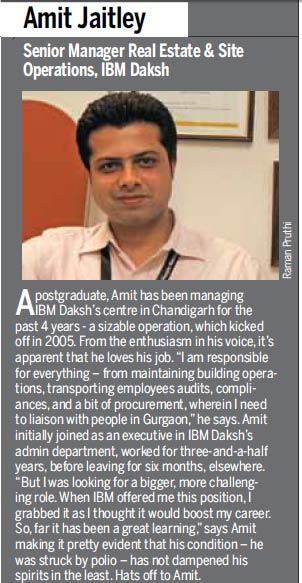
Several top BPOs provide additional tools for learning. For instance, IBM Daksh and Convergys have extensive online self-learning programmes with courses on domain areas such as finance or telecom, as well as self-improvement modules such as team management and assertiveness.
Moving beyond operations
An agent can also move into other key departments such as Recruitment, Training and Quality.
"Training and Quality are part of the same umbrella. However, a quality evaluator is someone who will listen into calls. Every agent's calls are reviewed each week in terms of compliance, following the proper protocol, voice etc, and they received feedback," says Tim.
Agents with a flair for training can at some point embrace the role of a trainer (also referred to as facilitators). Some trainers find takers outside the industry. For instance, NIIT Uniqua, which conducts BPO training has several trainers who started their careers in a BPO outfit.
Lateral movement is common in many BPOs through Internal Job Postings (IJP). "At Convergys, people have moved back and forth between departments. The transitions are fluid, functions are closely knit and tenures at the company are getting longer," says Ashutosh Sinha, director, India Recruitment, Convergys.
The KPO landscape
Postgraduates and those with professional qualifications find opportunities in KPO units, which are essentially BPO units that offer high-end services, which in turn demand specific skills. For instance, the Infosys BPO hires those with a Master's in Statistics and a Master's in Economics to do 'Statistical Modeling and Analytics' for clients.
"We also hire CAs, CFAs, MCom degree-holders, lawyers and MBAs for HR, Solution Design and pre-sales," Raghavendra shares. KPOs in India offer a variety of services, but the largest chunk comprise Legal Process Outsourcing (LPOs).
Getting ahead!
And it does not stop at KPO. As Raman Roy says, we have just scratched the surface. The domestic market is yet to be tapped in a big way. Opportunties for efficient service delivery for domestic customers abounds and the exisitence of more than 30 companies in the last few years vouches for the untapped potential.
Another important area is the non-voice rural BPOS. And between them these two new segments might grow at a much faster clip than conventional BPOs.
"We are always looking for people who will take the initiative to go out and learn," says Tim who has also mentored and several trained several agents in the course of his BPO stint. He adds with enthusiasm, "And if you want to get ahead and don't know where to look I would be very happy to have that conversation with you!"

If you think that working at a Business Process Outsourcing (BPO) or a Knowledge Processing Operations (KPO) company is all about play and little work, you may to have to think again. Agreed, some years back, the industry was viewed as a place for fun and some quick money. That, however, isn't the whole story. Now that the Indian as well as the global economy is recovering from recession, the industry is back on its feet and is on a hiring-spree.
Not just about calling
It is estimated that while 60 per cent of the vacancies are in the calling area or voice-based processes, more than 40 per cent of job opportunities are in non-calling functions.
In other words, BPOs and KPOs have a large number of openings in back-end operations about which only a few are familiar with. So, voice-based interaction is one small part of the functions in a BPO or a KPO company.
Types of KPOs
LPO
Legal Services, focuses on providing assistance to foreign legal service professionals in terms of transcribing, research and case development.
HRO
Human Resources Outsourcing ie, outsourcing functions such as payroll management, training, staffing etc, so that a client can concentrate on their core competency.
RPO
Research, especially for biotech companies; Kiran Mazumdar Shaw of Biocon coined the term
MBPO
Medical Business Process Outsourcing
ESO
Engineering service outsourcing ie, product design, research and development and other technical services across sectors like automotive, aerospace, hi-tech/telecom, utilities and construction/industrial machinery.
ESO
Educational Services Outsourcing. Good demand for Indian teachers, especially in Science and Maths.
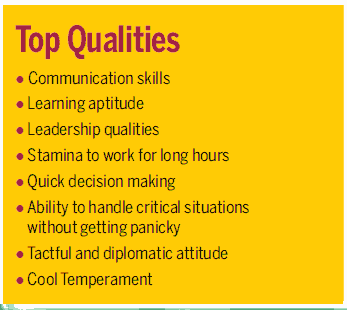
Graduates in any discipline are eligible to apply. In some cases, even undergraduates are considered. However, openings in the areas of Technical Support, Human Resource Management, Engineering Designs and Research Outsourcing and Finance and Accounting (F&A) would require professional qualifications such as an MBA, MCA, CA, CFA, Law, PhD, BE/BTech.
It isn't easy entering a BPO industry, though. It is an exhaustive process that includes both written and verbal tests.
General Aptitude Test
Most players in the BPO industry administer an aptitude test as part of the selection process. For example, the GAT (General Aptitude Test) at IBM Daksh is a web-based test. It comprises multiple-choice questions on analytical reasoning, numerical reasoning, grammar test, computer test (technical/ semi-technical).
The verbal tests include free speech round where the candidate is assessed for language proficiency, the ability to articulate thoughts, rate of speech and listening and comprehension skills.
For Transaction Processing and KPO-related jobs the selection process is slightly different. The selection process covers written function test, panel interview for checking subject matter, taking help of Subject Matter Experts (SMEs)and an HR interview to check if the candidate will fit in with the company's culture, says Praveen Kamath, Global Head of Talent Acquisition, Wipro BPO.
He adds that for some of the critical and high-end financial services requirements there is an additional round of discussion/ interview with the client to ascertain the fitment. For inbound and outbound voice-based jobs for international and domestic markets, recruiters look for a good voice and articulation of thoughts, says DP Singh, director, HR, IBM Daksh.
Other qualities recruiters look for include communication skills, grammar, proficiency in English, managerial and operational skills with leadership qualities and a strong sense of discipline. In addition, reasonable level of understanding of the domain goes a long way in helping the individual settle in quickly once he/she joins, says Kamath of Wipro BPO. Adaptability, points out DP Singh of IBM Daksh, is also important to succeed in this industry.
"Recruitment avenues or channels we tap for recruiting employees includes employee referrals, walk-ins, advertisements, campus, job fairs, portals and our channel partners." says Singh.

Insurance Process
Graduates/ PGs /diploma equivalent to graduates from any discipline. Preferably BCom graduates/ finance background.
Back end process
Graduate/ diploma-holder equivalent to graduates from any discipline with good typing skills.
Voice Process
Graduate/ PGs/ diploma holders equivalent to graduates from any discipline. Engineers from other streams like Civil,
Agricultural are also considered.
Technical Services
Graduate/ PGs/ diploma holder's equivalent to graduates from any discipline. Preferable BCA. Graduates/tech diploma rngineers from mainstream (Software/Computers). Engineers from other streams like Civil, Agricultural are also considered.
Advice to candidates
Prepare well for the interview, be truthful with the responses and be professional in your demeanour. Do carry along all your academic documents and you should be able to substantiate the details provided in your CV with all necessary proof.
At the time of interview, you would be expected to carry documents as part of joining formalities. These may include educational documents, previous work experience documentation, photo ID proof, photographs for internal use, PAN card, and identity and address proof (passport or passport application).
And remember, once the training starts, avoid taking leave. "You miss one day, your batch moves on and you are left behind," says Singh. Letter of Intent implies that the candidate has been hired. However, others many insert a clause stating that final recruitment will take place after successful completion of training. Singh of IBM Daksh explains why there is such a condition.
"Training is tough, it demands discipline and focus; not everybody is cut out for a career in this industry." Besides, the training is a huge investment as candidates are trained in communication skills, voice-training, language fluency, accent training, dealing with a tricky situation or an unhappy customer, decision making.
The skills acquired during training are so beneficial that candidates can apply in any industry or sector, he adds. Call Agents or Customer Care Executives who may need to attend both the inbound and outbound calls, which may be technical or non-technical in nature depending upon the expertise of the candidate. They are given their own workstation, a computer and a telephone.
In fact, people keen on joining the BPO industry can seek training in a number of soft skills from BPO training institutes such as NIIT Uniqua, Hero Mindmine and more.
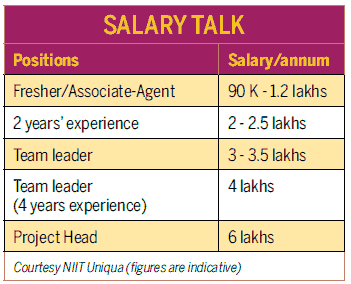
The general view is that jobs in BPO organisations are just about making phone calls with very few career growth opportunities, which isn't true, clarifies Singh. Because of this misperception the industry is unable to attract talented people.
Experts say that the processes and functions in a BPO or a KPO unit are so vast, and growth opportunities immense that anyone keen on a good career can look at joining a BPO or a KPO company. The exposure a BPO employee gets is staggering compared with what an MBA in a Fast Moving Consumer Goods (FMCG) company would get.
You are dealing with international clients, handling various industries such as FMCGs, Finance, Retail, Telecom. With some years of experience and good performance a call agent or a customer care executive can move up the ladder to become a team leader, project leader, project manager, trainer, training manager and so on. In areas such as Human Resource management, technical support, F&A you could become a senior manager drawing a package similar to a senior manager in retail or automobile industry.
Besides, there are plenty of in-house jobs and scope for lateral movement. In fact some companies actively encourage lateral movement of staff. For example, at Wipro, employees also have options to move into other businesses of Wipro like consumer care, infrastructure if they have the appropriate qualifications.
Many BPOs pay for their employees' education programmes. Wipro has a Learn and Earn Options to fast-track employee careers, allowing them to enrol in paid education programmes affiliated to various universities, offering a wide range of courses.
Remuneration
One starts with a minimum salary, which ranges between Rs 8,000 to Rs 17,000 at entry level. A team leader can earn up to Rs 25, 000-Rs 30,000 a month. Of course, those handling international clients are paid more than those handling domestic markets.
Managers and team leaders can get a pay package from Rs 5 lakh to Rs 8 lakh per annum. Other incentives include performance-based bonuses, pick and drop facility, shopping discounts, facilities such as gyms, health centres, subsidised loan schemes and health support and insurance covers covering parents and spouse and children.
The pluses and minuses
The BPO and KPO industry operates in a 24/7/365 framework. Be open to working in varied shifts including night shifts. And regular night shifts do afffect your health. The industry requires very strong customer service orientation. In addition, you must be resilient, flexible and prepared to work in a high performance oriented environment.
The calling jobs can turn out to be repetitive. However, Singh is of the view that this is one sector that allows you to take your career in your hand. And money definitely is good.